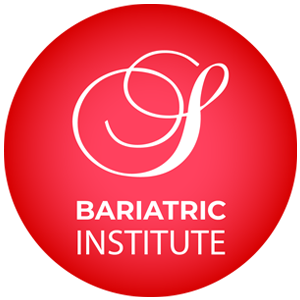What Should I Expect During My Laparoscopic Gastric Bypass Recovery?
Say goodbye to excess weight and hello to a healthier life!
Recovering from a Laparoscopic gastric bypass surgery is a gradual process that involves physical healing, dietary adjustments, and lifestyle changes. Here’s what you can generally expect during your recovery period:
1. Immediate Post-Operative Phase (Hospital Stay)
Duration: Typically lasts 2 to 3 days.
Pain Management: You will receive pain medication to manage any discomfort.
Mobility: Early ambulation is encouraged to prevent blood clots and improve lung function.
Diet: Initially, you will be on a liquid diet. This progresses to pureed foods as tolerated.
Monitoring: Your medical team will monitor for any complications, such as leaks or infections.
2. Early Recovery (First Few Weeks)
Diet: Gradual transition from liquid to pureed and then soft foods over several weeks.
Supplements: You’ll need to take vitamin and mineral supplements as your body’s ability to absorb certain nutrients will be reduced.
Physical Activity: Light activities, like walking, are encouraged, but strenuous exercise should be avoided.
Wound Care: Follow your surgeon’s instructions for incision care to prevent infection.
3. Dietary Adjustments
New Eating Habits: Smaller, more frequent meals are recommended. Learn to recognize the new signals your smaller stomach sends when it’s full.
Nutritional Balance: Focus on high-protein, low-carbohydrate, and low-fat foods.
Avoiding Complications: Stay hydrated and avoid foods that can cause blockages or discomfort.
4. Physical Changes
Weight Loss: Rapid weight loss is common in the first few months.
Energy Levels: You may experience varying energy levels as your body adapts to a reduced calorie intake.
5. Emotional and Psychological Adjustments
Mental Health: Some patients experience mood swings, depression, or anxiety post-surgery. Support from mental health professionals, support groups, or counseling can be beneficial.
Lifestyle Changes: Adapting to your new lifestyle and body image takes time and can be emotionally challenging.
6. Long-term Follow-up
Regular Check-ups: Ongoing appointments with your bariatric team are crucial to monitor your health, nutritional status, and weight loss.
Blood Tests: Frequent blood tests to monitor nutrient levels and prevent deficiencies.
7. Potential Complications
Dumping Syndrome: Rapid gastric emptying, causing nausea, vomiting, and diarrhea.
Nutritional Deficiencies: Due to altered digestion and absorption.
Gallstones: Can develop due to rapid weight loss.
8. Lifestyle and Behavioral Changes
Exercise: Regular physical activity is key for sustained weight loss and overall health.
Dietary Discipline: Adhering to dietary guidelines to ensure successful weight loss and maintenance.
9. Support Systems
Support Groups: Joining support groups for individuals who have undergone bariatric surgery can provide valuable advice and emotional support.
Recovery from Laparoscopic gastric bypass surgery requires a commitment to dietary changes, regular medical follow-ups, and lifestyle adjustments. While the journey can be challenging, it is also an opportunity to embrace a healthier lifestyle for long-term benefits. Always follow your healthcare team’s advice and reach out to them with any concerns during your recovery.
Take the First Step Now!
Our specialists are at your service to clarify doubts.
Schedule Your Free Consultation
Take the first step towards a new you. Schedule a consultation today and discover how the Laparoscopic Gastric Bypass Miami procedure can help you achieve long-lasting weight loss results.

